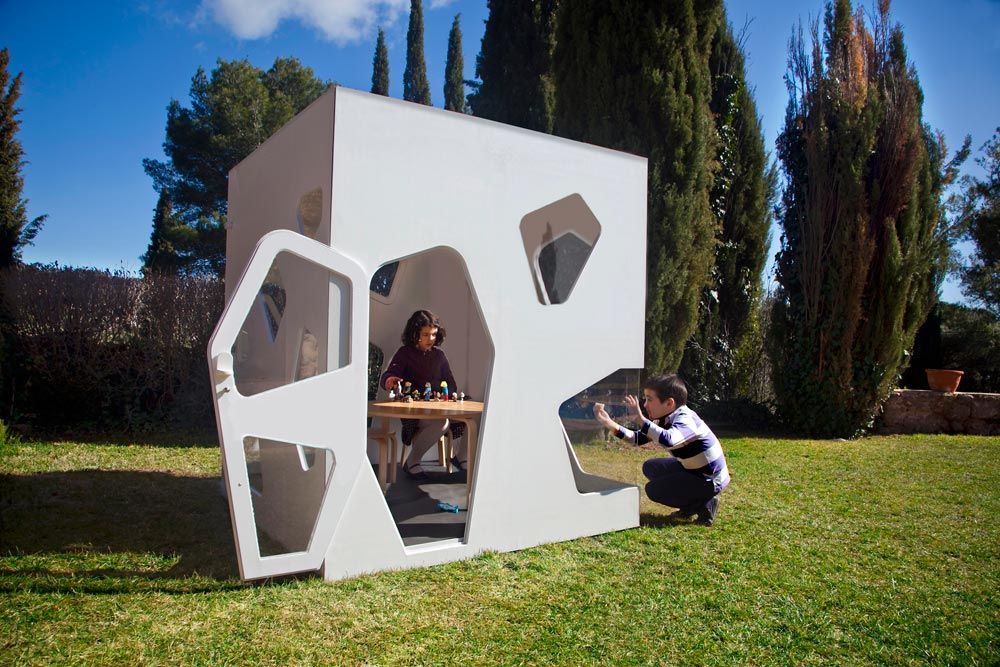
We were featured in Yorokobu magazine! This article published way back still summarises what SmartPlayhouse stands for. We thought it would be an excellent idea to share it with our English speaking readers.
Architecture for kids.
«Children’s stories are full of houses. Most of them hardly habitable. Because, who could live in a house made of sweets and chocolate as which they found Hansel and Gretel? Or in the straw, built by the lazy brother of the three little pigs? Not even a child would enter there. Among other things, her parents would not let him. Because, for some reason, what’s fun to children’s rarely meets parents».
A couple of years ago, SmartPlayhouse born with the intention to end this topic and show that the most entertaining toys can like to children aswell to their parents. Their playhouses are a good example. «The idea of creating a company specializing in the design and manufacture of toy houses emerged in 2008 during a trip to Denmark, where a a large number of households have kids playhouses in the garden. Although most were fairly traditional designs».
«Back home -continues David Lamolla, founder of the company- my daughter was still little but I told myself that when she were older I would like to arrange for her a little house of this kind».
And David is an architect began to think of possible designs. They all had something in common : they were far less conventional than he had seen during his visit to Denmark, more aesthetic and functional and also manufactured with materials. Thus was born SmartPlayhouse.
The aim of the project, according Lamolla was to make a product ambivalent «nice for parents but fun for the kids». Far from pretensions because the architect is aware that the toy houses, regardless of their design, the material they are made of, and ‘green’ they are, must be funny for children. «They are not able to appreciate this kind of details. What I wanted, simply, is that our homes also parents liked. They were a game, they were fun (even since assembly!) but also beautiful, fit well in a garden, made with good materials and friendly with the environment».
For the founder of SmartPlayhouse, the playhouses represent a tool for cognitive and social development of children: «With them have their own space. They have their order, their dimensions, and can learn to be ordered. Whereupon reinforce their independence but also their ability to share». In the case of the Nordic countries, says Lamolla, where this toy has a long tradition, the average age at which young people often become independent around 18 years old… «Maybe the reason is not becouse they had playhouses, or maybe there is some relation to this fact».
And what about Spain? Why is not that common to find this play structures in our homes? «It’s a matter of tradition, I do not know what’s the specific reason,» explains Lamolla. «In fact, here we have more sun to enjoy with the playouses. However, in the Nordic countries and other European countries and USA, people take more advantage of the garden, despite having fewer hours of good time.»
Text: Ximena Arnau
Yorokobu magazine
n. 19 June 2011
Madrid, Spain
http://www.yorokobu.es/me-encanta-la-casa-de-mi-hijo/

Leave a Reply